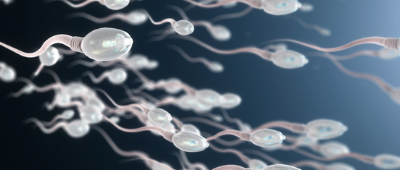Private IVF Clinics London - Egg Freezing and Fertility Preservation Advice
Each individual and every circumstance is unique. Depending on your gender, age and health, medical conditions, as well as the available timing required to start and complete treatments, you may have more than one reasonable option available to you when choosing Fertility Preservation.
What Are The Different Fertility Preservation Treatments from IVF Matters?
6 Types of Treatments used for Fertility Preservation
We encourage you to book in a free fertility telephone consultation with our founder Dr Irfana Koita - who will answer your questions for free when you schedule a personal telephone discovery call online.
If you are considering Fertility Preservation, whether for medical or social reasons, it is important to make an appointment with a fertility specialist (book your private fertlility consultation appointment using our online diary) as they can assess your current situation, your medical history, arrange any required tests and discuss the most suitable options available to you to enable you to make an informed decision.
Fertility Preservation: Types of Treatments
Jess Wright is a TV personality who underwent embryo freezing treatment with IVFMatters. This video talks about her positive experience with IVFMatters, UK and our fertility consultant Dr Irfana Koita.
Egg Freezing, Collection and Retrieval Demo Video
This is an increasingly popular method of preserving a woman’s fertility and involves ovarian stimulation, egg retrieval, quality assessment and cryopreservation [freezing]. Freezing eggs is the procedure of choice in those that want to delay their child bearing due to social or medical reasons.
The egg freezing procedure involves administering injections to stimulate the ovaries for around 12 days. Following this, the eggs are collected under sedation. The egg collection is a relatively non-invasive procedure, and carries minimal risks. On the day of egg collection, the eggs are vitrified for future use.
The 1st birth from frozen eggs using vitrification was documented in 1999. This was followed by the HFEA permitting egg freezing treatment in the UK from 2000. Scroll to the bottom of this blog post to see pregnancy stats from the HFEA in 2022.
Embryo Freezing
Embryo freezing is an option for couples who have either undergone an IVF/assisted reproduction treatment with excess good quality embryos that they are not yet ready to use, or for couples whose medical pathway or genetic background requires the fertilisation of the female egg with the male sperm to successfully produce viable embryos for cryopreservation prior to surgery or medical treatment. It can also be undertaken for social reasons, whereby the couple are committed but not yet ready to start a family.
The embryos need to be of good quality as poor-quality embryos do not survive the freezing/defrosting process. Embryos are frozen at the blastocyst stage [day 5 or 6]. They can be stored for up to 10 years in the first instance.
Sperm Freezing
Sperm Freezing is the most effective way of preserving male fertility and can be undertaken on patients as young as 13 if required. Sperm can be frozen for future use either in artificial insemination or other fertility treatments, or be donated. You may want to consider freezing your sperm if you have a condition or are facing medical treatment for a condition that may affect your fertility, or you have a low sperm count or the quality of your sperm is deteriorating, or if you have difficulty producing a sample on the day of fertility treatment.
Testicular sperm extraction [TESE]
In men with no sperm in their semen e.g. those who have had a vasectomy and later decide they want children, or in those who cannot ejaculate; such as men with spinal cord injuries, it is necessary to extract sperm surgically in order to fertilise eggs during IVF. Sperm obtained using any of these procedures will usually have poor movement and will need to be directly injected into each egg. This process is known as intracytoplasmic sperm injection (ICSI).
Testicular tissue freezing
Testicular tissue freezing is a specialist technique used to preserve the fertility of men who do not produce viable sperm in their ejaculate [azoospermia]. This method can also be undertaken for younger patients who are unable to produce ejaculate, prior to medical treatment such as that required to treat cancer.
Ovarian Tissue Cryopreservation
This is a relatively new fertility preservation method which is still in development. It was introduced for patients who are unable to freeze their eggs or for young girls who haven’t yet started ovulating.
The operation involves removing some ovarian tissue prior to cancer treatment, which is then frozen. This tissue can be put back into the ovaries to support the regeneration of the cells after a medical treatment.
Fertility Preservation Video Course by Dr Irfana Koita - Egg Collecing Demo online
Click to view the IVF Matters series of fertility preservation videos on YouTube directly.
The availability of cryopreservation ‘Fertility Preservation’ services are constantly changing owing to advancements in research and the technological capabilities in the expanding fertility sector. Always speak to a Fertility Specialist to discuss what options may be best for you to suit your own circumstances.
HFEA - Egg Freezing Success Rate Data
June 2022: The UK fertility regulator, The Human Fertilisation and Embryology Authority (HFEA), measures success based on how many embryos (developed from a patient's own frozen eggs) result in a live birth. Data from their latest statistical release, published in 2020 outlines trends and successes for Egg Freezing across the UK.
HFEA Egg Freezing Statistics
- About 54,000 patients had 68,724 fresh and frozen in-vitro fertilisation (IVF) cycles and 5,651 donor insemination (DI) cycles at HFEA licensed fertility clinics in the UK in 2018.
- In 2018, the average birth rate per embryo transferred for all IVF patients was 23% and rates have steadily increased over time for all patients aged under 43.
- In 2018, birth rates for patients below 35 were 31% per embryo transferred, compared to below 5% for patients 43 and above when using their own eggs.
- The live birth rate per embryo transferred remains above 20% for each of the first three cycles of IVF treatment.
- Donor eggs can considerably increase the chance of a live birth to above 25%, but only 18% of patients aged 40 and older used donor eggs in 2018.
- The multiple birth rate decreased to 8% in 2018 for the first time.
- Implanting more than one embryo has no significant impact on the chance of a live birth but results in a 32% multiple birth rate for patients under 35.
- Since 2013, the number of egg and embryo storage cycles increased fivefold to just under 9,000 cycles in 2018 as freezing techniques improved and have become more commonplace.
- The level of NHS funding for fertility treatment varies across the UK with 60% of cycles funded by the NHS in Scotland and falling to less than 30% in some parts of England.
The advice from HFEA is - if freezing your eggs is something you're considering, then the earlier the better. The treatment’s success is strongly dependent on the age of the woman at the time of freezing her eggs, with higher success rates in those aged 35 and under.
Data from the HFEA shows the most common age to freeze eggs is 38.
If you are considering Fertility Preservation, get in touch with IVF Matters today to find out how we can help with Egg Freezing Treatment.






